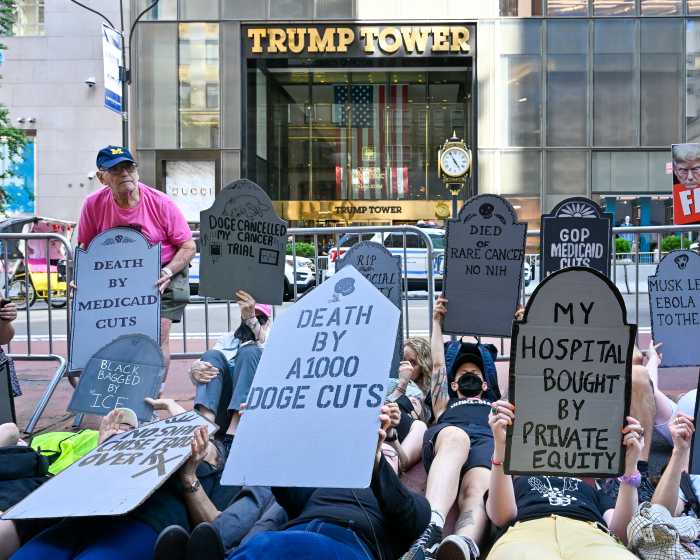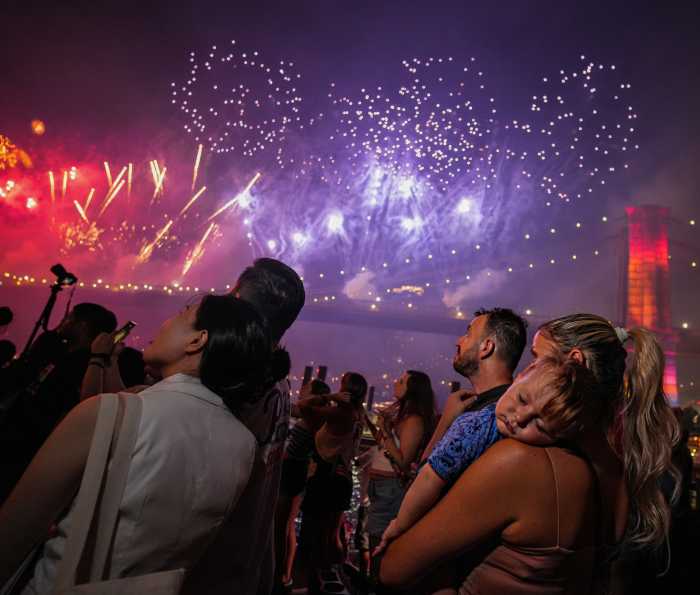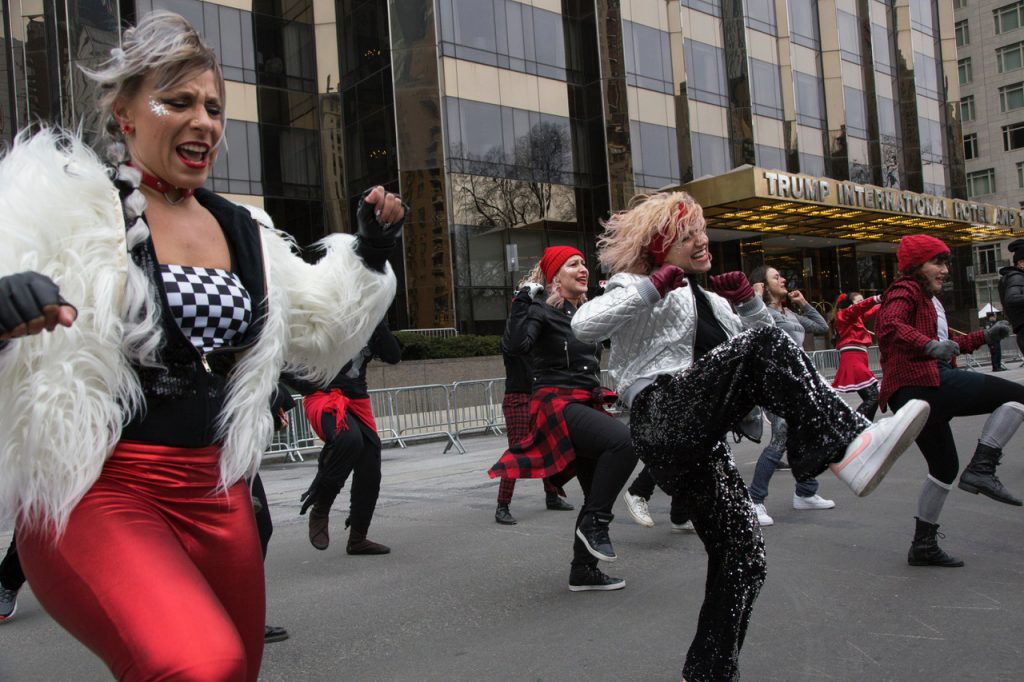
BY PAUL SCHINDLER | Two years after women and their allies in untold numbers turned out the day following Donald Trump’s inauguration to protest the new president, Women’s Marches were once again staged in numerous cities on Jan. 19.
As is not unheard of in protest movements, this year’s events were marred by internal divisions. In New York, specifically, there were competing charges of anti-Semitism and non-inclusiveness.
The Women’s March Alliance, which has produced the New York event since 2017 and is not formally aligned with the Women’s March held in Washington, held a brief rally on Central Park West before marching from W. 62nd St. to the W. 40s.
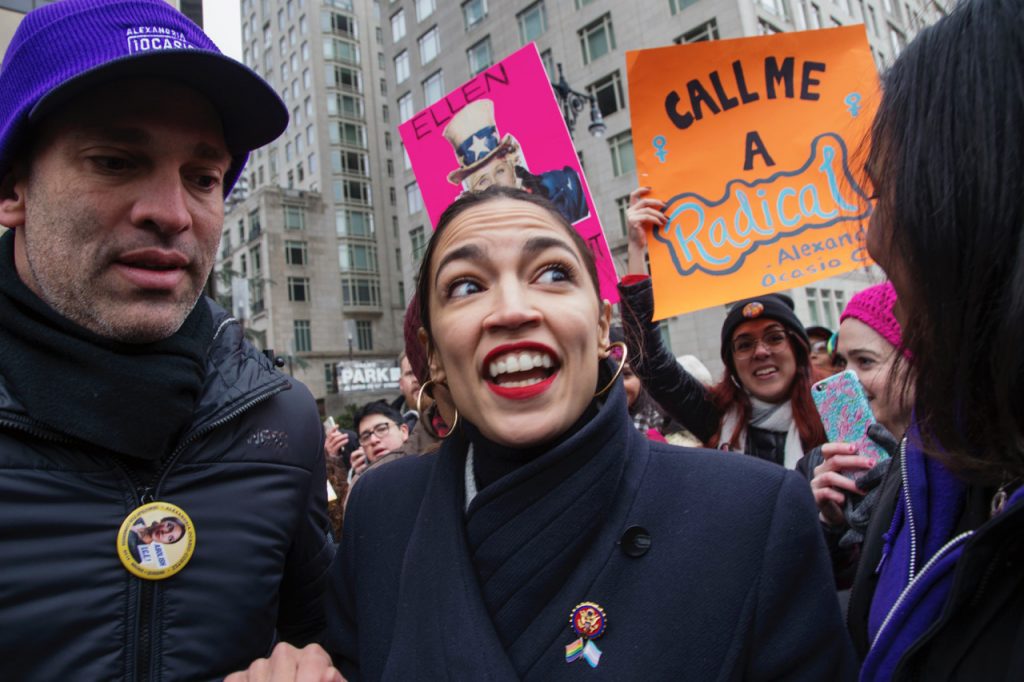
Leaders from the D.C. event, including Linda Sarsour and Tamika Mallory, had approached the Women’s March Alliance last year to forge a relationship. But Alliance organizers voiced discomfort with Sarsour’s endorsement of the Boycott, Divestment and Sanctions aimed at Israel and, more important, with Mallory’s unwillingness to personally condemn Nation of Islam leader Louis Farrakhan, even though she has called out that organization’s anti-Semitic and homophobic history.
The Alliance, in turn, was criticized for what critics said was a lack of inclusivity of women of color. When talks between the two groups failed to make headway, a separate Women’s March NYC was planned for Foley Square in Lower Manhattan.
Rabbi Sharon Kleinbaum, the leader of Congregation Beit Simchat Torah, the city’s L.G.B.T.Q. synagogue, was among a group of nine prominent rabbis who engaged in a lengthy process of dialogue with Sarsour and Mallory. While the rabbis, in a written statement, said, “We have not resolved our differences,” they also argued that “divisions between Jews and People of Color only serve to further the aims of white supremacists and their enablers, and to erase the strong presence in our Jewish communities of Jews of Color.”
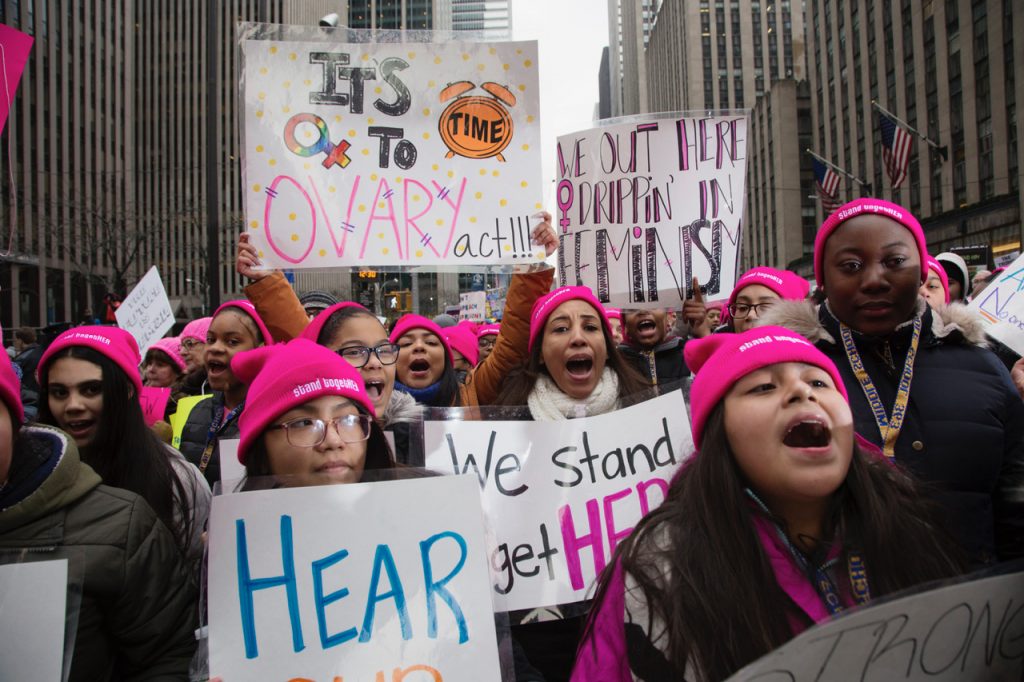
The group went on to say, “We encourage members of the Jewish community to participate in the Women’s March on 1/19/19. In Washington, D.C., and New York City, there are contingents of Jews marching together, and those who wish to express Jewish pride and solidarity may wish to join them.”
In a Facebook post, however, Kleinbaum elaborated, “CBST is not endorsing or formally participating in” either of the New York events and that for her the important goal is to “find a way to build toward the day after” the two gatherings.
The Women’s March Alliance event on Central Park drew the larger crowd, with Congressmember Alexandria Ocasio-Cortez the highest-profile speaker in a brief pre-march program.
Ocasio-Cortez also spoke at the Women’s March NYC Downtown, and was joined there by other prominent women, including Gloria Steinem, Kleinbaum and her wife, teachers’ union leader Randi Weingarten.
The direct-action group Rise and Resist, unhappy with the Women’s March Alliance’s commitment to disability access, hosted a third event on Saturday at Grand Central Terminal, timing it for the afternoon so that its members could also participate in the morning rally that Women’s March NYC held in Foley Square.
Gays Against Guns, ever seeking to raise the visibility of the gun-regulation issue, fielded contingents in all three events.






